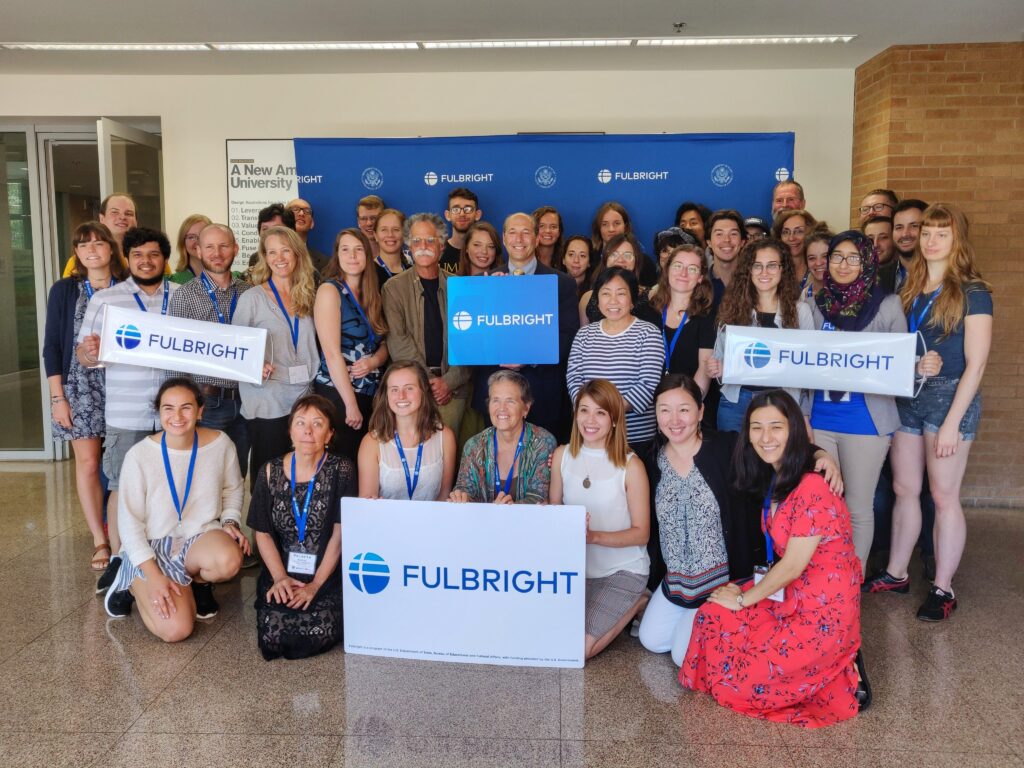
When Dr. Michael Crow became the 16th president of Arizona State University (ASU) in 2002, he outlined his vision for transforming ASU into a "New American University" -- one that would be open, inclusive and committed to academic excellence and global impact. ASU’s achievements now include their designation as a 2023 Fulbright Hispanic-Serving Institution Leader.
ASU’s charter guides its admissions process “measured not by whom it excludes, but by whom it includes and how they succeed.” Over one-third of ASU students are first-generation college students, and an equal number receive Pell Grants. In fall 2022, 46% of incoming first-year students came from minority backgrounds. ASU has also increased its retention rates and six-year graduation rates with its philosophical focus on inclusion.
Crow’s vision for “radical inclusion,” as well as the charter’s emphasis on global citizenship, are reflected in the university’s approach to helping their students and faculty benefit from Fulbright opportunities.
“ASU is designed to enhance broad access for the intellectually curious and to support student success across the widest spectrum of leading-edge learning opportunities,” said Crow. “We attract highly creative, energetic and diverse scholars from all backgrounds who want to challenge themselves, immerse themselves in new experiences, and then apply their valuable knowledge to make the world a better place.”
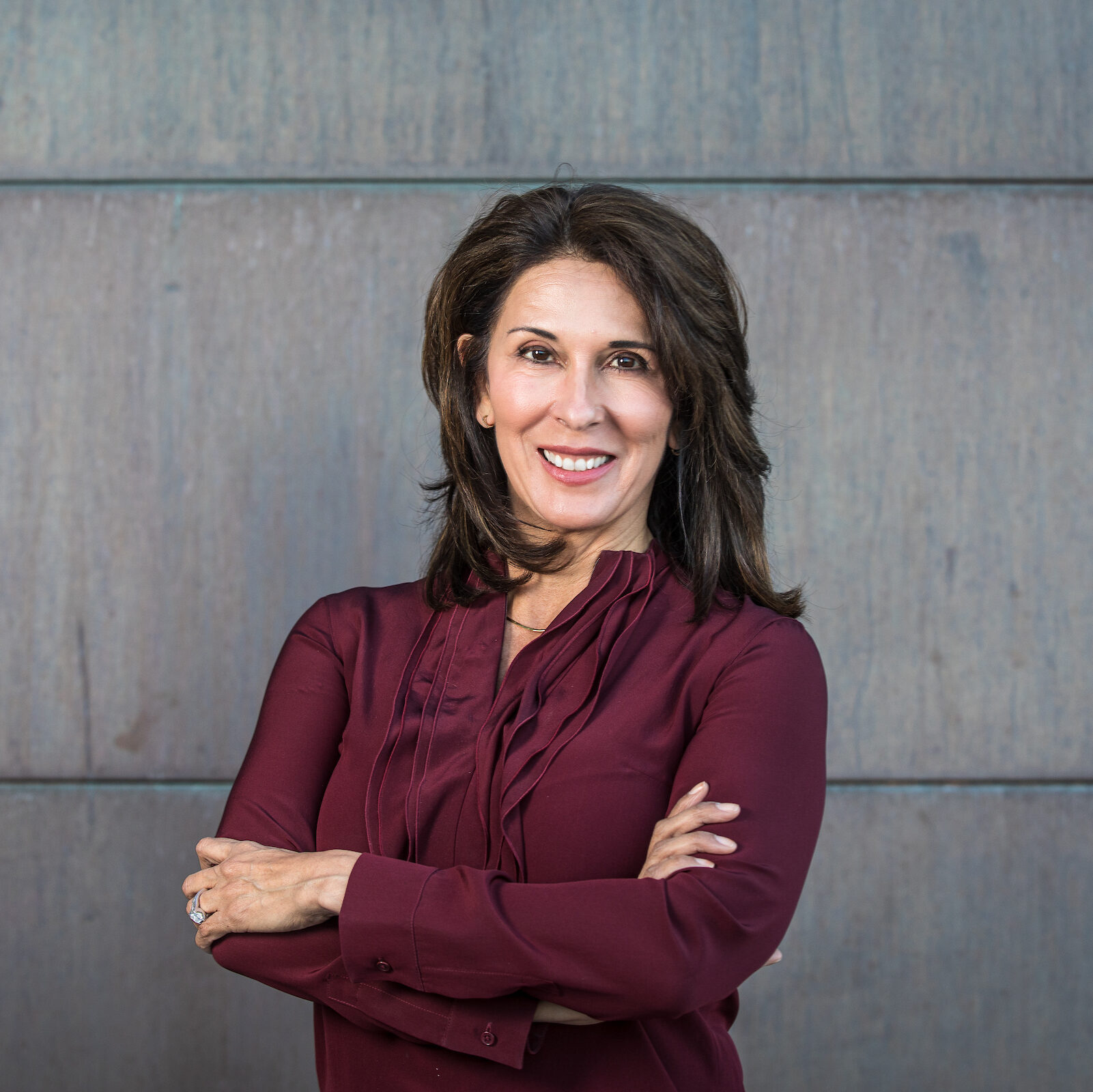
According to executive vice president and provost Nancy Gonzales, the ASU staff, faculty, and students involved in the Fulbright Program are vital to a globally engaged university.
“Now more than ever we need research-based ideas that impact how the international community engages with one another,” Gonzales said. “We need more and more cultural exchange and knowledge sharing that enables the brightest minds from different backgrounds to connect and collaborate in ways that create equitable, safe and sustainable futures for all.”
“Our Fulbright scholars and students are leading this charge, and the faculty and staff who support them are critical to achieving these aspirations. We are deeply proud and grateful for those involved in making ASU a Fulbright HSI Leader.”
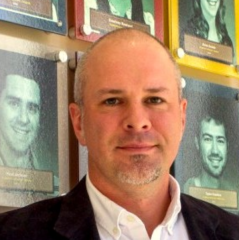
Dr. Kyle Mox, a Fulbright Program Adviser, applies the radical inclusion from ASU’s charter to his advising strategy. He adopts the perspective that “anyone at ASU can be a Fulbrighter” and sees opportunities opening as a result.
Mox brings his eighteen years of advising experience to his role as the Director of ASU’s Office of National Scholarships Advisement (ONSA). This office supports students and alumni as they seek and apply for major external scholarships and fellowships. Mox encourages creativity, interdisciplinary thinking, and intensive self-reflection in the application process.
“ASU’s continued high production of Fulbright recipients illustrates the persistent efforts of our students, faculty and staff to create a supportive community of excellence at ASU,” Mox said. “Our success is no accident.”
He attributes much of the university’s success with the Fulbright Program to the fact that ASU’s charter aligns well with Fulbright’s core values. “We ask our learners to engage in ‘research and discovery of public value’ and to assume ‘fundamental responsibility for the economic, social, cultural and overall health’ of the communities that we serve,” he said. As a result, ASU’s students easily “understand the Fulbright mission.”
Mox outlines ASU’s successful student outreach and advising strategy for Fulbright as a process of helping students and alumni to see themselves as Fulbrighters; encouraging students to apply for undergraduate awards, so they are better prepared to apply for a Fulbright when they graduate; finding and meeting targeted groups of potential applicants in their own spaces; and enlisting faculty support.
He believes that once students come to realize how thoroughly connected the University is to scholars and institutions around the world, and how many opportunities they have to engage with other cultures and languages, Fulbright becomes a natural extension of the student experience.
Mox is particularly proud of ASU’s recognition as a Fulbright HSI Leader, because it of the Program’s emphasis on inclusion and representation, noting “it only seems right that if we send young ambassadors abroad to represent the United States, that cohort should be representative of our population.”
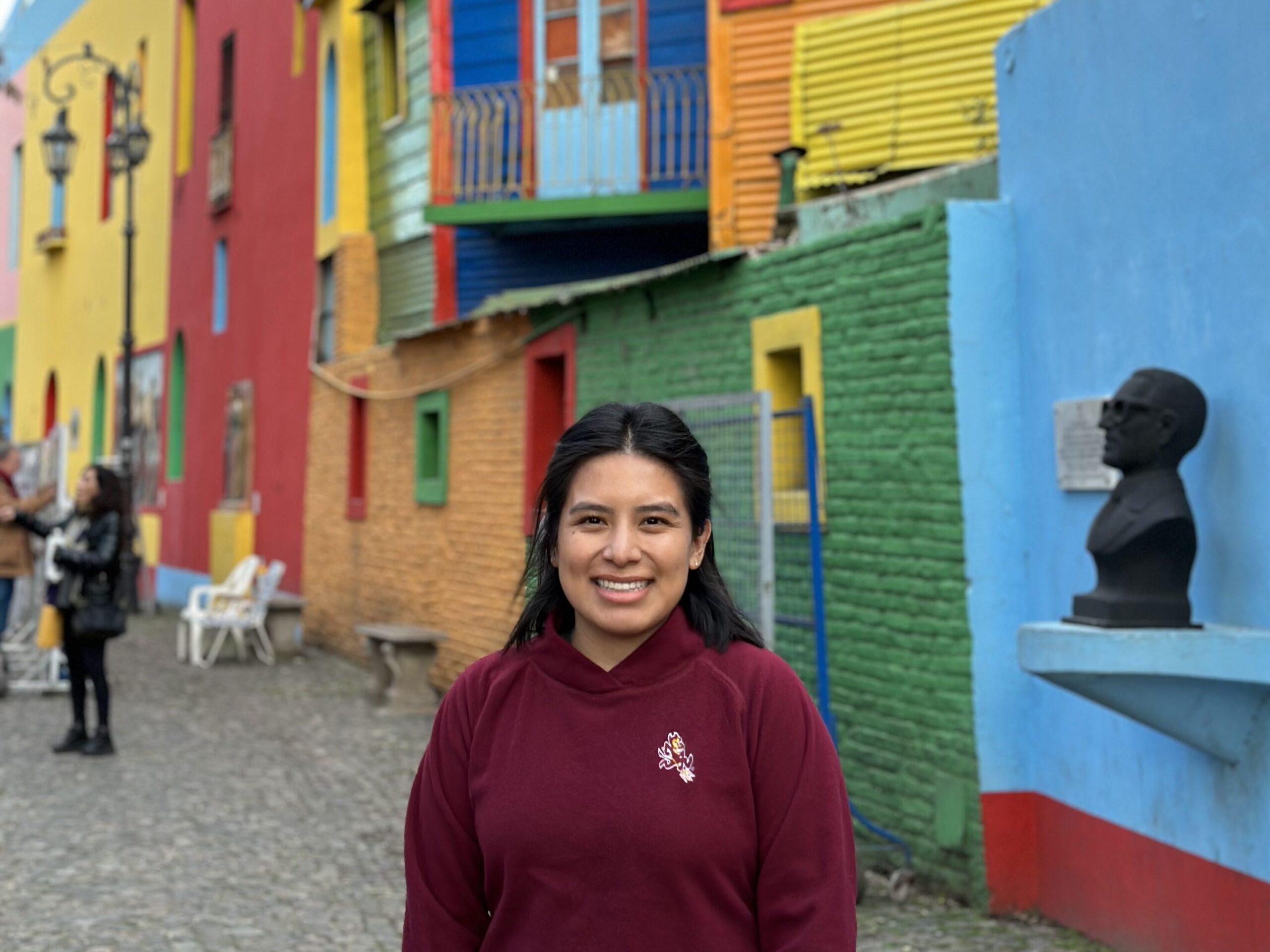
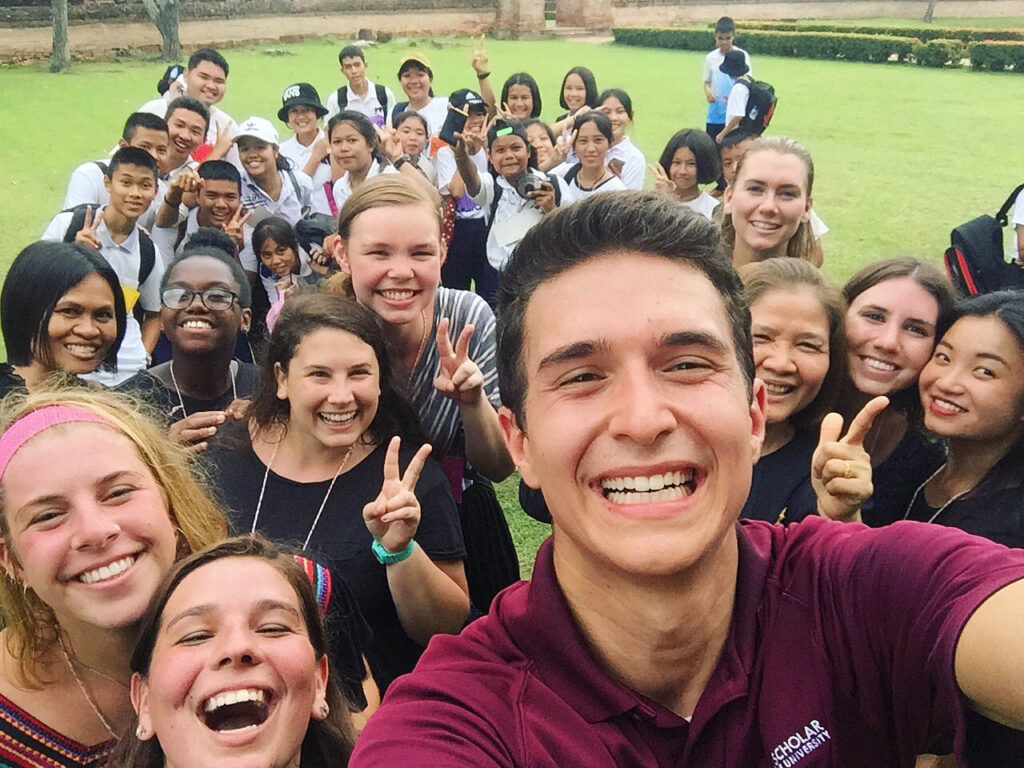
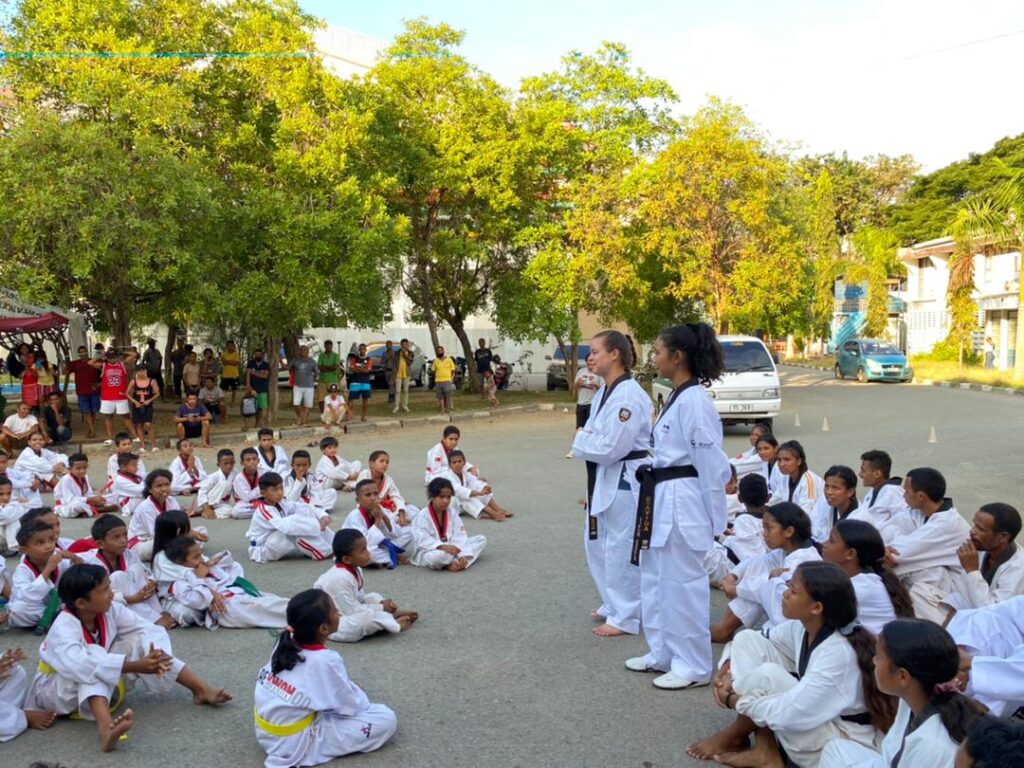
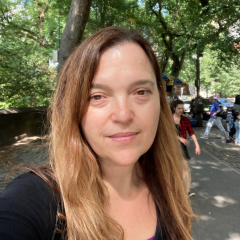
Karen Engler-Weber, a program director in the Office of the University Provost, has served as ASU’s liaison to the Fulbright Scholar and Specialist programs since 2015. She works extensively with Fulbright scholars to bring ASU’s mission of community impact and global inclusion to life. ASU has been a “Top Producer” of Fulbright U.S. Scholars nearly every year, and the number of ASU faculty participating in the Specialist program has quadrupled.
Engler-Weber first came to the university in 1994 as a first-generation college student from a low-income background, a population ASU seeks to support through the work of their charter. As the child of immigrants from Slovakia and Venezuela, she said, “I always appreciated learning about other cultures.”
In addition to her work with the Fulbright Program, she has worked as a faculty member and currently directs the university’s Commission on the Status of Women and the Faculty Women’s Association, which seek to provide development programs, resources, and support for women and underrepresented groups in the university system. Engler-Weber describes her work with faculty as helping them understand Fulbright opportunities, providing consultations and one-on-one advising, and assisting those who wish to take families abroad with them.
Fulbright benefits the ASU community by enabling faculty to engage in meaningful research and teaching abroad and expand their professional networks. Collaborations started by faculty while abroad often lay the groundwork for future partnerships between ASU and host institutions. Upon returning to ASU, faculty share their stories with the community, and often become active supporters of international exchange. They invite world scholars to their home institutions and encourage colleagues and students to go abroad, particularly through the Fulbright Program. Recently returned scholars also review drafts of applications through a Fulbright mentor/review program that Engler-Weber established.
“It is incredibly exciting to see the ways that faculty are taking their research and teaching from ASU to countries around the world, engaging in projects that have a long-term global impact,” said Engler-Weber.
Two faculty Fulbrighters whose work demonstrates the radical inclusion of the charter are Professor Lorena Cuya Gavilano and Amber Wutich.
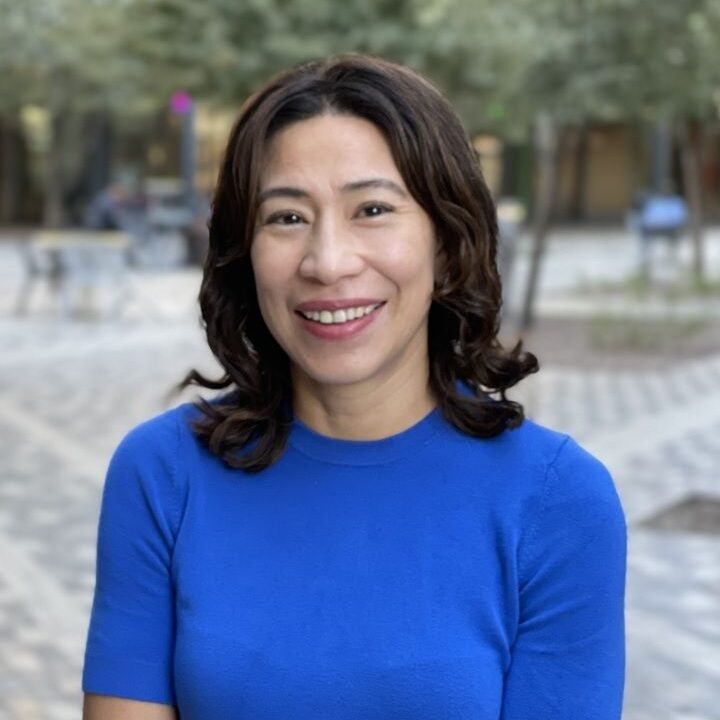
Professor Lorena Cuya Gavilano, an associate professor of Spanish language, literature and culture at ASU’s Downtown Phoenix campus, was a 2022 Fulbright U.S. Scholar at Pontifical Catholic University of Peru. Her Fulbright project on “Andean Border Thinking and Chinese Migration to Peru,” investigates complex cultural exchanges, practices of inclusion and exclusion, and knowledge produced by the Chinese diaspora in Peru. In Peru, her students engaged with their surrounding community to promote social connections, social awareness, and apply theories of social change to practice. She plans to continue her Fulbright institutional collaborations back at ASU through synchronized class sessions with both ASU and Peruvian students and professors to share both North and South American perspectives. She aims to create further international partnerships and working groups on the concept of Border Thinking, "connecting students and scholars in Andean countries and beyond.”
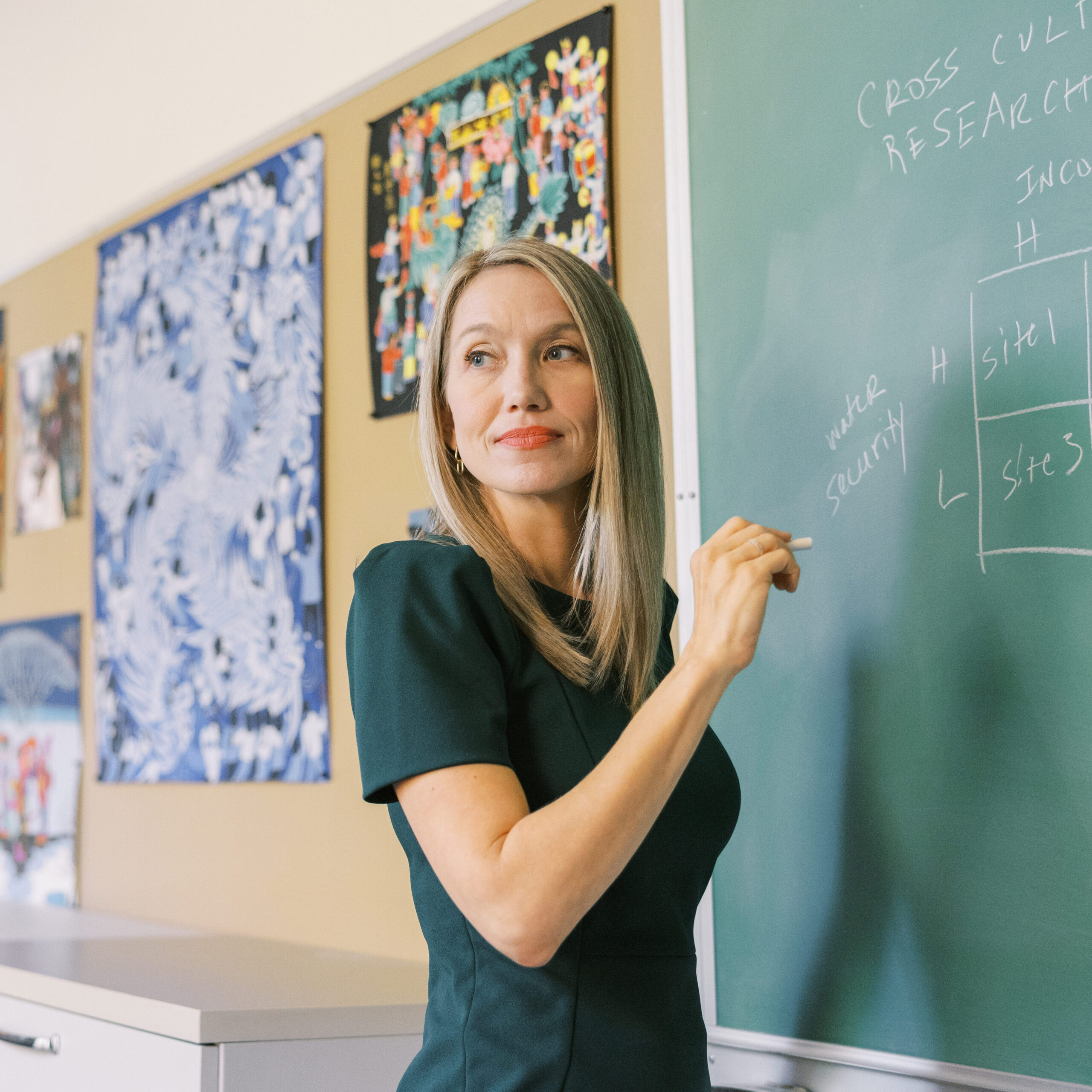
Anthropology faculty member Amber Wutich’s award-winning research builds on her work as a 2003 Fulbright U.S. Student to Bolivia, where she first studied water scarcity. This began two decades of community-based fieldwork and extensive publications exploring how people respond, individually and collectively, to extreme water-scarce conditions. Wutich now directs ASU’s Center for Global Health and the Global Ethnohydrology Study and directs the National Science Foundation’s Cultural Anthropology Methods Program. She won a 2023 MacArthur grant to continue her cross-cultural study of water knowledge and management in an international network of over twenty countries. More recently, she founded Action for Water Equity, a collaborative project which identifies small-scale solutions for water insecurity in rural, unincorporated, or marginalized communities within high-income countries.
These projects, focusing on transforming marginalization to inclusion, typify why ASU faculty are particularly competitive for Fulbright. Engler-Weber notes that in fulfilling Arizona State University’s charter, they also fulfill Fulbright’s mission to foster mutual understanding.